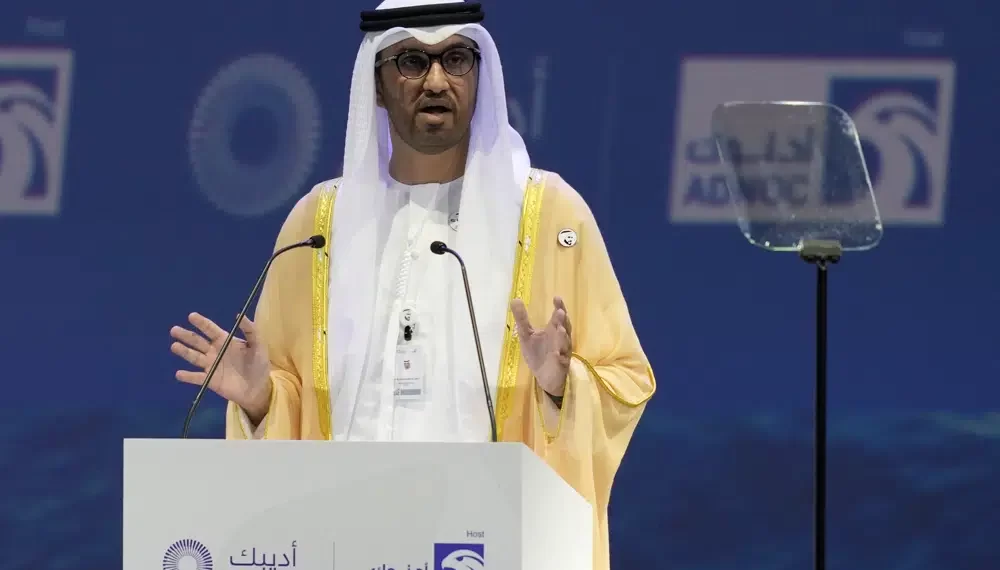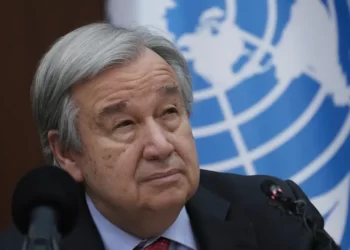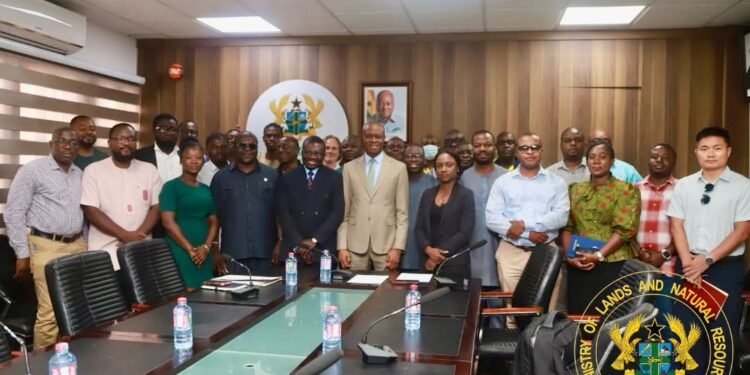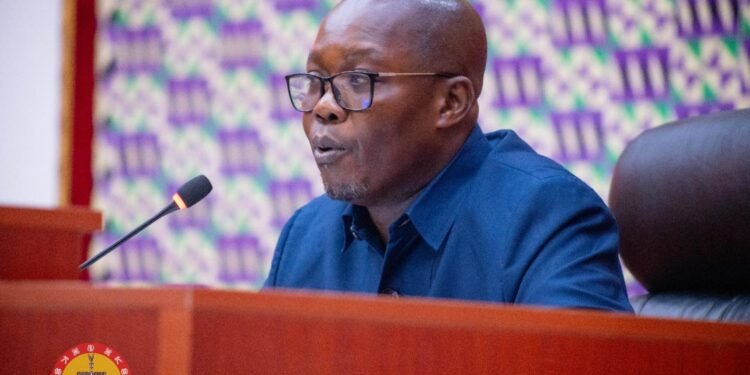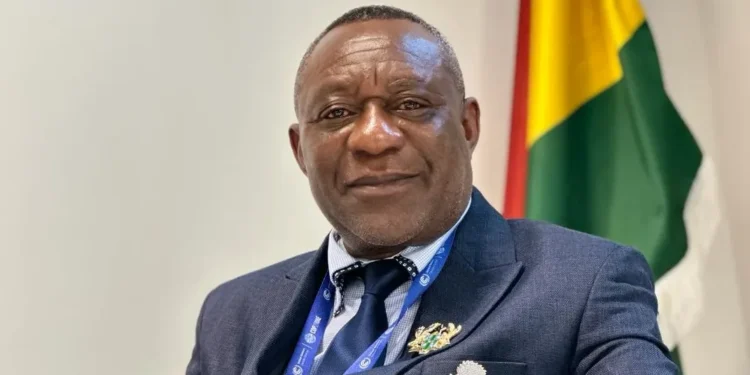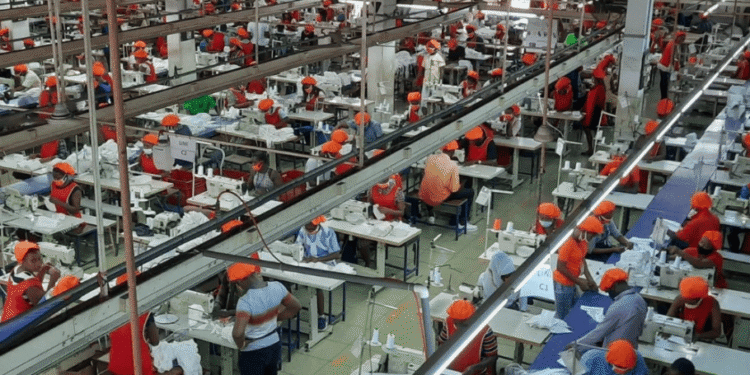The United Arab Emirates(UAE) authorities have nominated veteran technocrat, Sultan al-Jaber to lead the upcoming United Nations climate negotiations in Dubai.
Sultan al-Jaber, a trusted confidant of UAE leader, Sheikh Mohammed bin Zayed Al Nahyan, serves as CEO of the Abu Dhabi National Oil Company and oversees its renewable energy efforts.
Sultan al-Jaber also once led a once-ambitious project to have a $22 billion “carbon-neutral” city on Abu Dhabi’s outskirts; an effort later pared back after the global financial crisis that struck the Emirates hard beginning in 2008.
Even today, al-Jaber serves as the chairman of Masdar, a clean energy company that grew out of the project that now operates in more than 40 countries.
“Sultan al-Jaber has the credentials and background to lean into trends that are already ongoing. Him being an oilman, I don’t think that will be that big of a risk for him.”
Ryan Bohl, analyst for a risk-intelligence firm, RANE Network
The Emirates’ state-run news agency made the announcement, noting al-Jaber’s years of serving as a climate envoy.
“This will be a critical year in a critical decade for climate action. The UAE is approaching COP28 with a strong sense of responsibility and the highest possible level of ambition. We will bring a pragmatic, realistic and solutions-oriented approach that delivers transformative progress for climate and for low-carbon economic growth.”
Sultan al-Jaber
In its announcement about al-Jaber, UAE state media disclosed that the Emirates had invested “more than $50 billion in renewable energy projects across 70 countries, with plans to invest a minimum of $50 billion over the next decade.”
According to the New York-based research firm, Global SWF, Mubadala which is Abu Dhabi’s sovereign wealth fund, has invested about $3.9 billion since 2018 in renewable energy.
Sultan Al-Jaber’s Nomination Draws Immediate Criticism
The nomination of the CEO of Abu Dhabi’s state run oil firm drew immediate criticism.
Harjeet Singh, Head of Global Political Strategy at Climate Action Network International, stated that al-Jaber holding the CEO title at the state oil company posed “an unprecedented and alarming conflict of interest.”
“There can be no place for polluters at a climate conference, least of all presiding over a COP,” Singh emphasized.
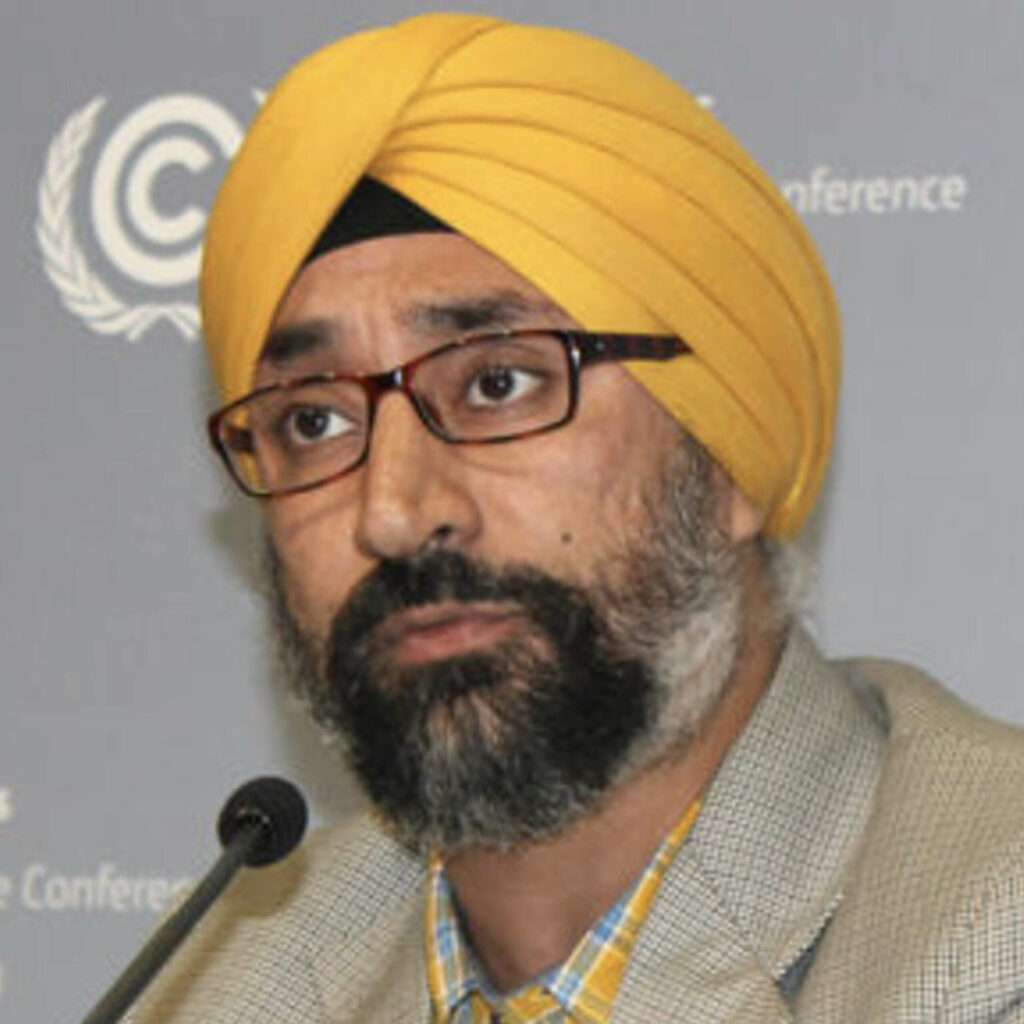
Alice Harrison of Global Witness made the same assertion without mincing words.
“You wouldn’t invite arms dealers to lead peace talks. So why let oil executives lead climate talks?”
Alice Harrison
Each year, the country hosting the U.N. negotiations known as the Conference of the Parties; where COP gets its name, nominates a person to chair the discussions.
Hosts typically select a veteran diplomat as the talks can be incredibly difficult to coordinate between competing nations and their interests.
The nominee’s position as “COP President” is confirmed by delegates at the start of the talks, usually without objections.
The caliber of COP Presidents has varied over the years. Observers widely saw Britain’s Alok Sharma as energetic and committed to achieving an ambitious result.
Egypt’s Foreign Minister Sameh Shoukry, however, faced criticism by some participants for the chaotic and at times non-transparent way he presided over last year’s meeting.
The UAE is home to a massive solar park in Dubai, as well as the Barakah Nuclear Power Plant, which is the Arabian Peninsula’s only atomic energy source.
However, the UAE also requires vast amounts of energy to run the desalination plants that brought green golf courses to its desert expanses, to power the air conditioners that cool its malls in the heat of the summer and power heavy industries like aluminum smelters.
COP28 will be held at Dubai’s Expo City from November 30 through to December 12, 2023.
READ ALSO: US And Japan Bolster Their Military Alliance

